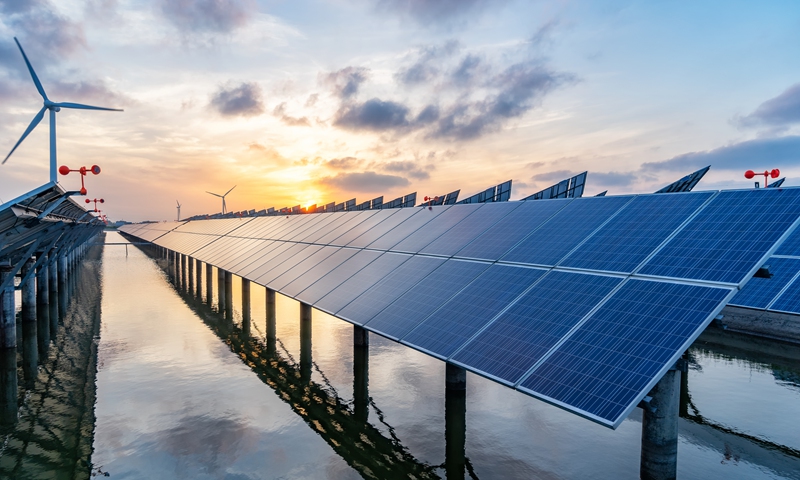Keith’s BYD car dealership in Leeds, England. In the last year, Chinese-made vehicles have doubled their share of new car registrations in Britain. — Owen Richards/The New York Times
ON a recent Monday in Leeds, Dougal Keith drove a Chinese-made BYD Seal Excellence out of his dealership and hit the accelerator.
The car can reach 100kph in 3.8 seconds – a key selling point – and comes with a £48,000 price tag, roughly 20% cheaper than a top-range Tesla Model 3.
Keith, a car salesman for more than 40 years, said customers were sceptical of buying Chinese vehicles when he opened a showroom for BYD in 2023.
Now, he runs six dealerships devoted to the brand.
“Some people think because it’s Chinese it’s made cheaply,” he said. “But then I ask, ‘Where do you think your iphone is assembled?’”
Chinese cars are gaining ground in Britain for a mix of reasons.
There are no steep tariffs on Chinese EVS – unlike in the EU or the US – allowing lower prices. British buyers are also less brand-loyal, with no major domestic mass-market automaker to defend.
Roughly a dozen Chinese brands, including BYD, Chery and Geely, made up 13% of new car registrations in Britain in November, double their share a year ago, according to the Society of Motor Manufacturers and Traders.
“The pace is like nothing the market has ever seen,” said Ian Plummer, chief commercial officer of Autotrader.
BYD and Chery, selling Jaecoo and Omoda models, are gaining market share five or six times faster than Tesla a decade ago or South Korea’s Kia in the 1990s.
Britain’s domestic auto industry has been shrinking, producing about 600,000 cars in 2025, roughly half of the output at the end of the last decade.
Major producers include Nissan, Jaguar Land Rover and Mini.
Meanwhile, China is now the world’s largest car exporter and leads in EV production, exporting to markets from Mexico to South Africa.
Chinese automakers have mastered shifting regulations and consumer demand, particularly for hybrids.
Beijing encourages exports to manage domestic overcapacity, sometimes leading to heavy losses and triggering pushback in Western countries.
The US has imposed 100% tariffs on Chinese EVS, the EU up to 45%, while Britain charges 10% on all imported cars.
About two million new cars are sold in Britain each year.
Since 2019, the number of brands registering sales has nearly doubled to over 70.
No single brand commands loyalty like Volkswagen in Germany or Renault in France, giving newcomers room to grow.
Chinese brands first gained a foothold with SAIC Motor’s acquisition of MG.
Production gradually moved to China, and the UK MG factory closed in 2016.
MG now accounts for over 4% of new registrations – the largest share for a Chinese-owned brand – while BYD holds just over 2%, similar to Tesla.
Keith sold his first car in 1980 at 16 and later expanded his family business.
By the early 2020s, he noticed BYD and,
“Some people think because it’s Chinese it’s made cheaply. But then I ask, ‘Where do you think your iphone is assembled?’”
Dougal Keith
with other independent dealers, secured one of the first UK franchises.
Initially, sales were slow, with only an all-electric model available.
As more models arrived, particularly plug-in hybrids, sales surged.
Dealers highlighted tech features: rotatable touch screens, wireless chargers, voice controls, even karaoke.
“Customers are beginning to understand it’s not a budget brand,” said Fozia Siddique, who has worked with BYD since the Leeds showroom opened.
She recently sold a BYD plug-in hybrid SUV to Steve Vine, 55, who drives more than 480km from Leeds to Cornwall and wanted a long-range EV.
Roger Lyons, 60, in Derbyshire, chose a £48,000 BYD Seal Excellence after testing Audi, Hyundai and Porsche models.
“It’s almost as nice to drive as a Porsche, and it’s got more toys than any of the others,” he said, adding that switching to electric would help cut fuel costs.
Encouraged by the success of BYD, Keith opened two more dealerships selling Changan vehicles.
His group, which runs 28 dealerships selling global brands, expects £500mil in sales for 2025, over 50% higher than 2024.
In September, the Leeds BYD showroom outsold all his other local locations.
“It’s pretty good going for a brand that two years ago nobody had heard of,” he said. — ©2026 The New York Times Company





























